● Oncology
-

Human TEL-AML1 Fusion Gene Mutation
This kit is used for qualitative detection of TEL-AML1 fusion gene in human bone marrow samples in vitro.
-

Human Methylated NDRG4/SEPT9/SFRP2/BMP3/SDC2 Gene
The kit is intended for in vitro qualitative detection of the methylated NDRG4/SEPT9/SFRP2/BMP3/SDC2 genes in intestinal exfoliated cells in human stool samples.
-
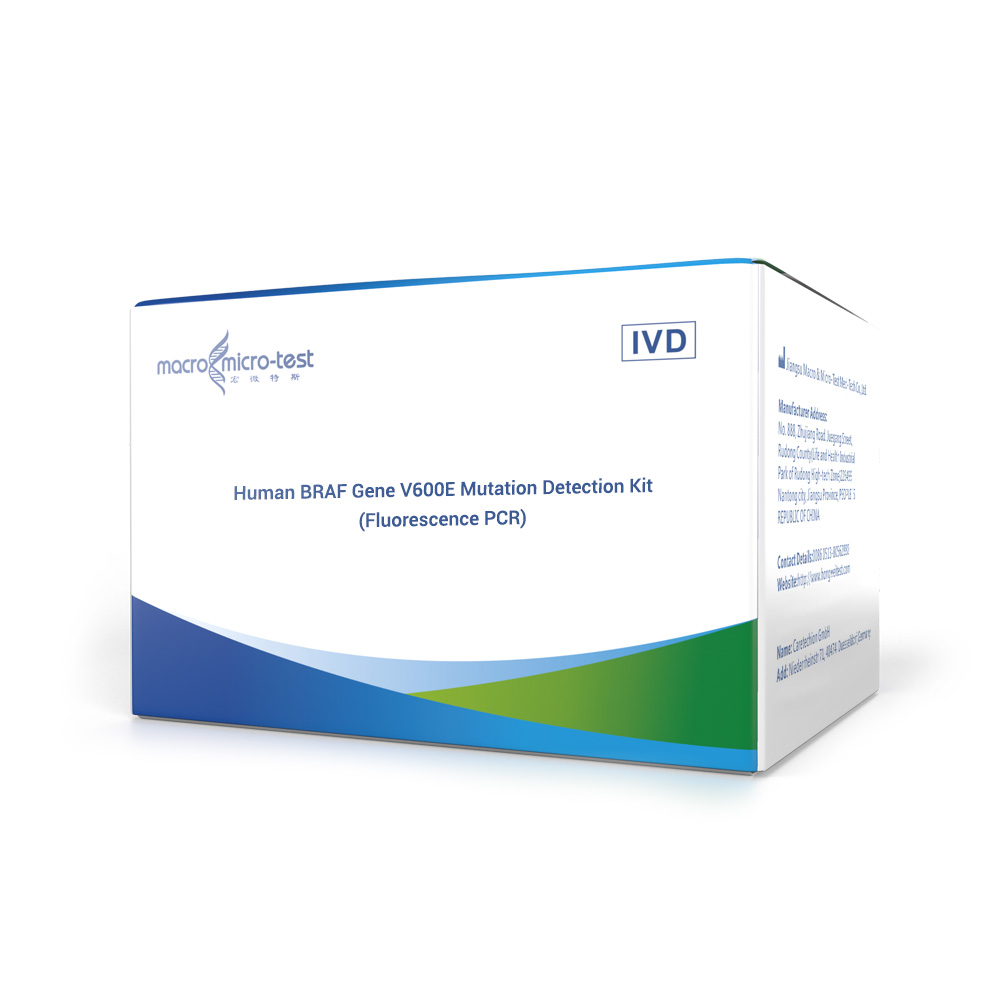
Human BRAF Gene V600E Mutation
This test kit is used to qualitatively detect the BRAF gene V600E mutation in paraffin-embedded tissue samples of human melanoma, colorectal cancer, thyroid cancer and lung cancer in vitro.
-
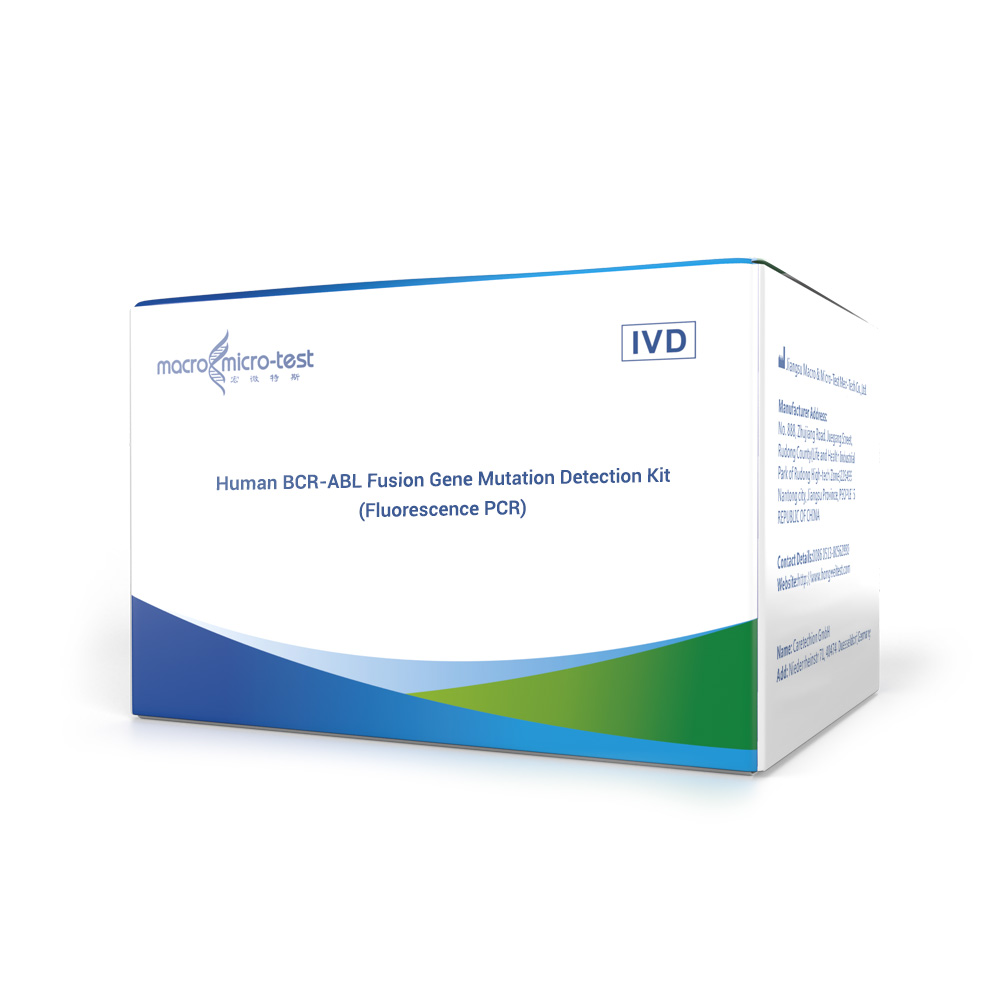
Human BCR-ABL Fusion Gene Mutation
This kit is suitable for qualitative detection of p190, p210 and p230 isoforms of the BCR-ABL fusion gene in human bone marrow samples.
-
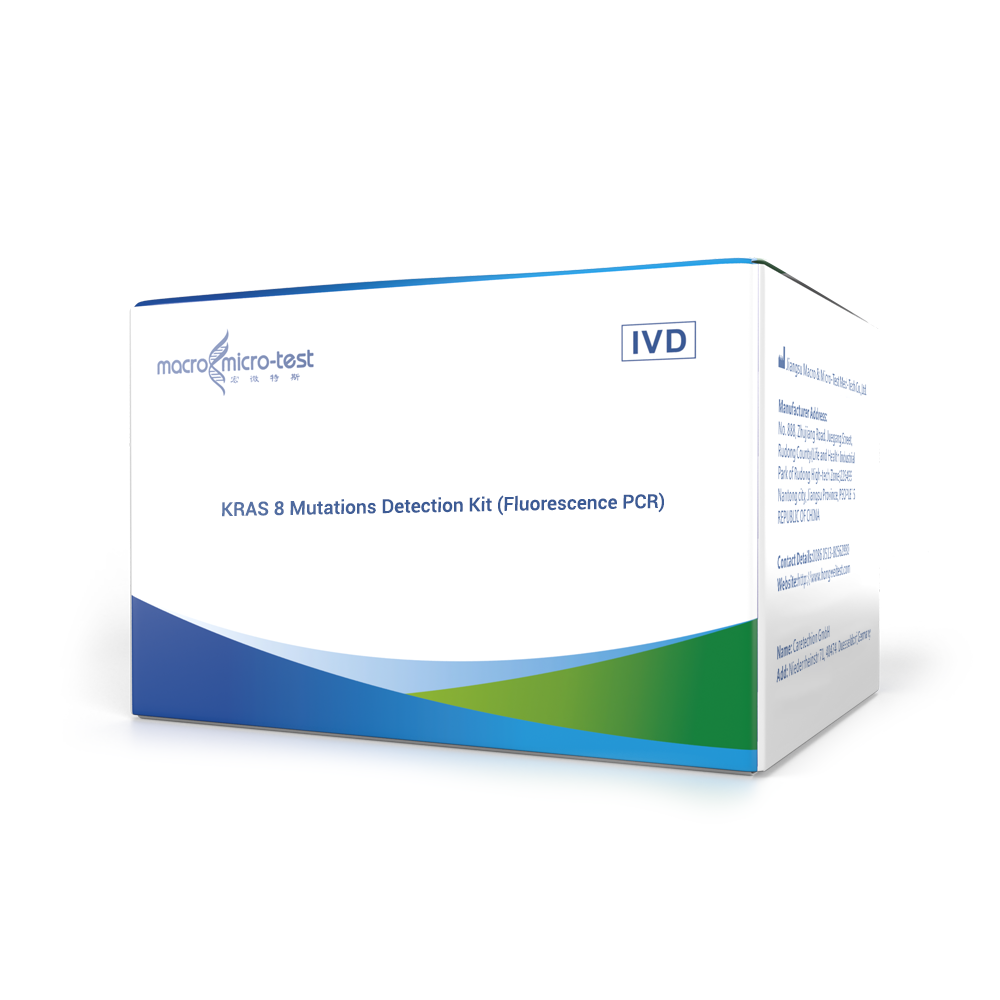
KRAS 8 Mutations
This kit is intended for in vitro qualitative detection of 8 mutations in codons 12 and 13 of K-ras gene in extracted DNA from human paraffin-embedded pathological sections.
-
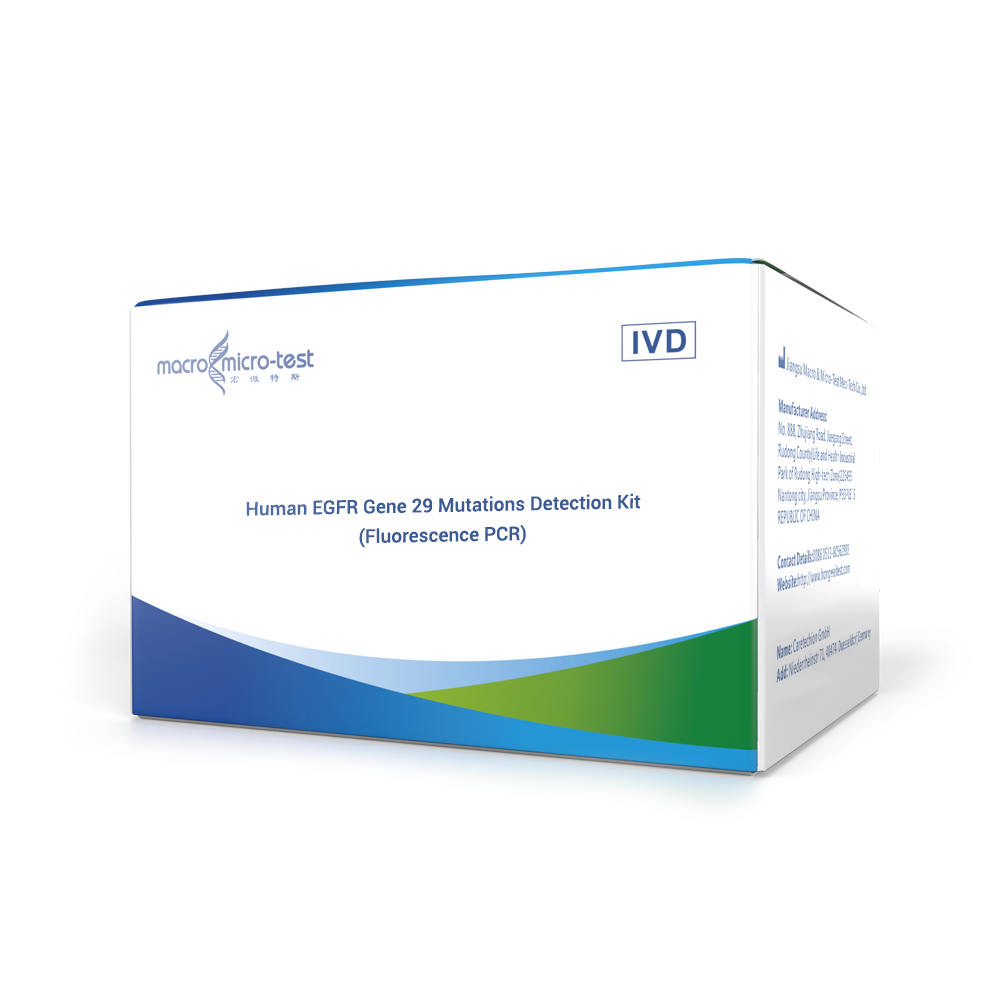
Human EGFR Gene 29 Mutations
This kit is used to in vitro qualitatively detection of common mutations in exons 18-21 of the EGFR gene in samples from human non-small cell lung cancer patients.
-

Human ROS1 Fusion Gene Mutation
This kit is used to in vitro qualitative detection of 14 types of ROS1 fusion gene mutations in human non-small cell lung cancer samples (Table 1). The test results are for clinical reference only and should not be used as the sole basis for individualized treatment of patients.
-
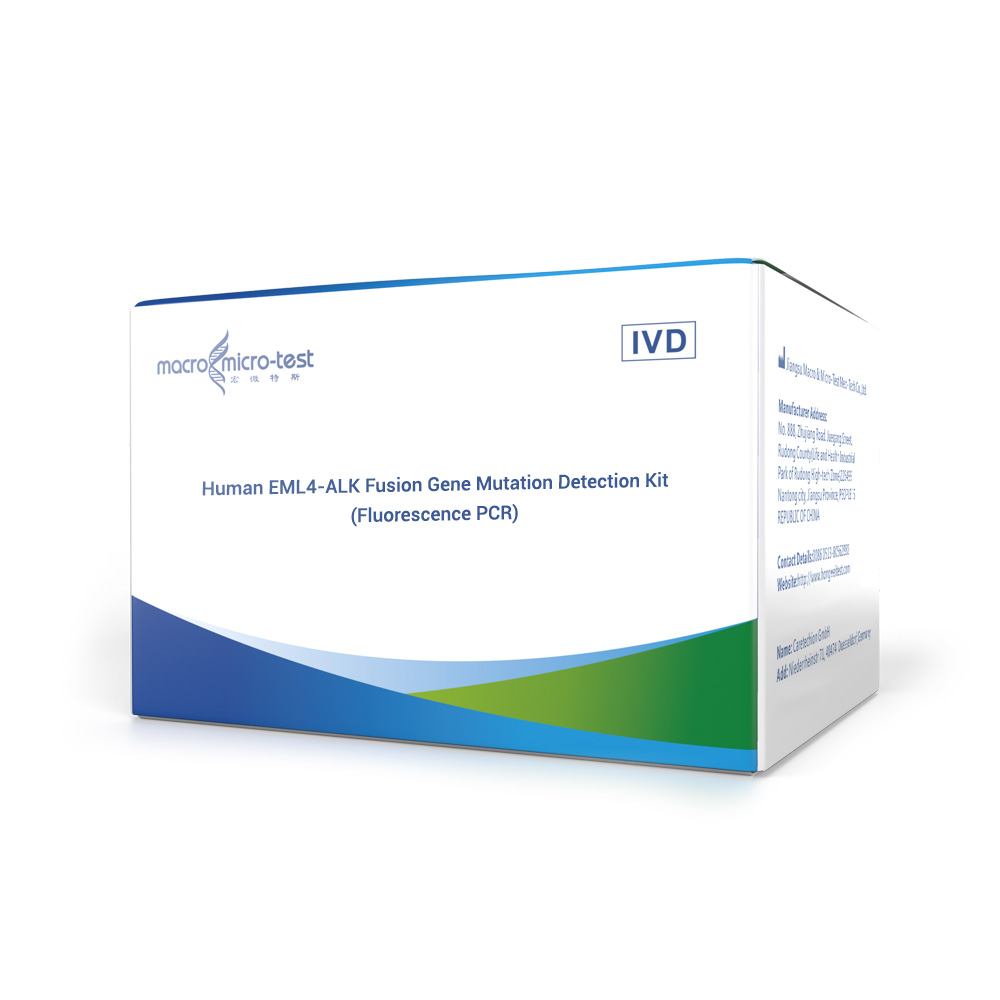
Human EML4-ALK Fusion Gene Mutation
This kit is used to qualitatively detect 12 mutation types of EML4-ALK fusion gene in samples of human nonsmall cell lung cancer patients in vitro. The test results are for clinical reference only and should not be used as the sole basis for individualized treatment of patients. Clinicians should make comprehensive judgments on the test results based on factors such as the patient’s condition, drug indications, treatment response, and other laboratory test indicators.


